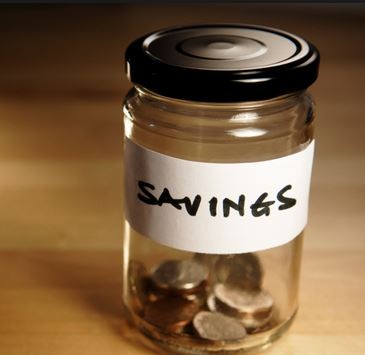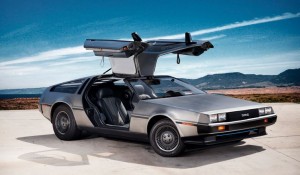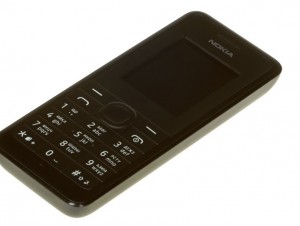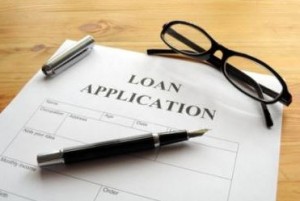
‘Essential’ items I’ve never bought
Looking over the ‘demotivator’ calculator from MSE has made me consider some of the items I’ve managed to avoid wanting or purchasing over the years and just how much of an impact they’ve made on the finances during my reasonably short life so far. The additional bit of this calculator is that it will work out how many weeks you would have had to work to pay off this expense from a given salary after taxes.
I thought it would be interesting to list some of the most obvious ones and run the figures for each with my 5 year working career so far:
Car

I have never owned a car. Infact, I’ve only learnt how to drive one earlier this year specifically as a requirement for moving into a new job role. When the other kids in my college were off buying bangers and then working 16 hours every weekend to afford the petrol + insurance, I was out cruising the streets on my trusted peddle bike (which I still own 10 years later despite needing some minor repairs).
Cars absolutely leech money. Even parked up on the drive way they are oozing out the pounds in the form of insurance and taxes. Combine this with petrol (gas), maintenance and parking fees pretty much make an early car purchase almost fatal to a young person’s finances.
Assuming a relatively cheap 2nd hand initial purchase of £1000. Petrol of £200 a month, Yearly maintenance of £200, Taxes of £50 a year and insurance average of £500 a year averages at a massive £280 a month!
Total Cost: £16,750
Smart Phone

That above is my trusted Nokia phone. Before it, I had another similar model for many years which I only replaced once the keypad had completely worn away and the speaker no longer worked. Despite proving their resilience and thus value many times over, I still receive comments about my phone from friends and family who attempt to convince me of the benefits of buying a flashy new smart phone.
The truth is though: I cant see any real benefit for myself. I work in IT so am at a computer all day, and have both a desktop and laptop at home so can easily jump on one in the evenings should I wish. I commute on a motorbike and rarely go out to restaurants/bars so would have few opportunities to sit playing on a phone anyway.
I’ve also never had a mobile phone contract. 1000 minutes, unlimited texts, all the data you can eat.. How does anyone even come close to needing all this?! It’s huge wastage but on a digital scale.
Smart phone contract at £25 a month for 5 years.
Total Cost: £1500
Daily Coffee

Many people claim they need a cup of coffee just to start the day, and I’ll confess to being part of that camp. However, I’ve never actually bought a cup of coffee. No Costa, Starbucks, Coffee Republic or any other of these highstreet invading brands. The coffee produced by my office machine tastes just fine to me and has saved me countless hours stood in queues at coffee shops getting shoved by busy commuters late for their trains.
Personal finance bloggers frequently use the coffee example as a relatively minor expense which can massively compound given a daily purchase and a few years of the habit. It’s a great example because the expense is so seemingly small and yet has surprising figures.
£3 a day, 5 days a week and 50 working weeks.
Total cost: £3750
Bank loan/overdraft

Before I headed off to university and whilst still in school I was working every weekend and evening I could. When the time came to head off to uni, I’d managed to save over £7000 adjusted for inflation. Not a bad figure for a 17yr old I reckon!
Fortunately, I was also the last year group to attend university during the lower fees which limited them to just £1025 a year. This was easily covered by the government issued student-loan and living expenses came out of my pre-uni savings. Result: Never needing a bank loan or overdraft. Ever.
It’s hard to put a figure on this as the bank charges and very dependent on the amount borrowed, interest rates etc. However a conservative estimate would put it at a few hundred pounds.
Total cost: £300
All together, over the past 5 years, I’ve saved a massive £22,300 by not purchasing any of these ‘essential’ items. Sometimes it’s been tough.. particularly on the cold wet morning commutes fully exposed on a motorbike. However calculating the figures helps remind me that it’s been worth the sacrifice.
What other ‘essential’ items have you managed to live without? And how much has it saved you over the years?

15 thoughts on “‘Essential’ items I’ve never bought”
I’ve never bought a smartphone myself. The only reason I have one is because I got one for work. It always amazes me how much money people are spending on updating their smartphones.
I’ve known people to be on £50 a month contracts! It’s crazy, and i’m sure they never come close to using up the allowances. Total wastage.
Very interesting. Personally, I live in Dallas, Texas (USA) – a place where things are so spread out and public transportation is not as available as it should be. Cars are essentially a necessity if you want to get around town without spending several hours on public transportation. I am certainly looking forward to the day that I can live a car-free life.
I am also guilty of having a smart phone. The most I’ve paid for a phone is $35, and even though I am 25 years old, my “Christmas gift” from my step mom comes in the form of cell service. Occasionally I use it as a GPS and sometimes make money transfers using my bank’s app, but other than that, I really don’t have a dying need for it.
I also drink coffee on a daily basis. However, the company I work for provides a huge variety of coffee for employees, and I don’t drink coffee when I am not working, so that works out alright.
Here I was thinking I was doing a pretty good job cutting expenses, but man, you really operate a whole lot more efficiently than I do! I might have to revisit my expenses before too long.
Hi Clay,
It sounds like you’ve got quite a few of these expenses. It’s those small but regular ones which quickly compound and are often ignored as being ‘insignificant’ when doing budgets. I’d definitely take another look at how much the daily/weekly purchases are adding up to over a few years.
ERG,
That’s awesome that you’ve been able to do without a car for your whole life. I’m sure that’s saving some serious cash. It’s tough to live without a car here in the US if you’re outside of a major city with good public transportation (NY, Chicago, D.C.), although I lived without a car for quite a while in a small town in SW Florida.
But the math doesn’t always work out so good here in the US. If you end up living in a big city where public transportation is plentiful then you might end up paying much higher costs for housing. So money you’re saving on owning a car might be wasted away via housing. Plus, public transportation isn’t free. I hear it’s quite expensive in NY. A cheap used car in an area with cheap, plentiful housing might be your best bet, but it’s also all about lifestyle and living near your work, groceries, etc.
Keep up the great work!
Best regards.
Hi Jason,
I think things would be different if I were in America. We went without a car on a recent holiday to Florida and it was a bit of a mission trying to get anywhere on public transport. I hear what you’re saying about the costs as well, trains are particularly expensive over here.
I guess my mention of the demotivator in your last post comments stirred the old grey matter to reflect more on this again eh! You appear to have added a 3 in your coffee calculation btw… £750 rather that £3,750 I believe.
My big current “payrise” (as i like to call saving money that i was previously spending) of the last 2 years is quitting the train to work: my annual travel card was tipping over the £1,000 point last year, so I’ve started cycling all the way.
Beyond “essentials” that I think a lot of people just replace non-essential things with much more frequency than i do: TV’s, computers, furniture, clothes would all be examples:
home TV – purchased in 2003.
computer – currently 4 years old.
wooden kitchen chairs – handed on from my parents (we’ve had them 12 years, but in themselves they must be 30yrs old)
winter jackets – both North Face, so expensive when purchased, but they are now 8 years old & still going strong.
I guess the latter is an essential though – though how many clothes any person needs is of course a subject of many column inches in today’s fast fashion culture.
It did indeed! I’ve calculated all of the costs as being over a 5-year period, so £750 a year.. £3750 for the 5 years.
It’s great to think of savings as pay rises, essentially they are and with the bonus of also saving on the wasted taxes. £70 of savings is equal to a £100 pay rise thanks to NI and Tax.
Good job on getting full value out of your purchases! I have to admit to not following fashion trends and only replacing items when they are literally falling apart.
Interesting post.
Like you I have never purchased a smart phone, I don’t buy coffee etc etc. The only thing we have is a car. We live in a rural location and need to be at work smart and early.
You can run a car on about the same money (maybe a bit less) as a big sports bike. I ran big bikes for years. The last was a VTR 1000. A great bike but not that economical and hard on tyres. I run an 8 year old diesel Volvo V50 now. It was a trade in with a few issues (so very cheap). I plugged it in via the OBD II port. It told me more or less what needed fixing. It’s been running fine for 2 years now. I always service it myself and do any other maintenance required. Insurance and tax are £370 per year in total. The car also does between 47 – 56 mpg driven sensibly.
We use wood for heating the house. All of our wood is free, so the car is used to collect it. It’s also useful for lot so of other jobs that save us money. We do use the bicycles for running errands that don’t require the car though.
In summary, it is possible to run a car on a shoestring if you are willing to put in a bit of effort and use it sensibly.
Anyway, keep blogging.
BM
Hello BM,
Good points about the bike and car. You’re totally right that the type of each can make a huge difference to running costs.
I wish I could heat my house for free, how do you get free wood? do you chop it yourself?
Hi there,
With respect to the free wood we decided last year that we would just ask around as an experiment. I also asked anybody who was having construction work done, if I could take away pallets etc.
Since then, we’ve been offered so much we can’t accept it all.
We chop up pallets and shipping material and also use any wood we can get hold of from felled trees.
Give it a try. We won’t be buying any fuel for a few years to come, as we have so much stacked and ready to go.
That’s pretty awesome, well done! Not only saving you a tonne.. but also exercise from the chopping and saving others the hassle of disposal. Do you have a log burner heater thing? I know Ermine from Simple Living Suffolk has a similar setup, certainly worth investigating as we do live near a load of farms and woodland.
Got to be honest and admit I’ve not done without any of these, apart from the coffee but I don’t drink that anyway :)
There are various levels of frugality, the top level is simply doing without something. I’d like to think I am only one floor below the penthouse of frugality whereby the “essentials” we get are at the best possible price and we are living and spending efficiently.
And of course we avoid what many people seem to think are essentials such as brands, cars on finance, smoking… Etc… This is all basic stuff though :)
Oh and I had a student overdraft but it was interest free!
Still have to pay the bugger back though so the psychological win by not having one therefore not spending it is worth way more than £300 to you… Kudos yet again on that one Guy!
Hi TFS,
I agree about the levels and there’s no point trying to force yourself to a level which you won’t be happy with or able to maintain. I freely admit; There’s a good few non-essentials I do purchase ;)